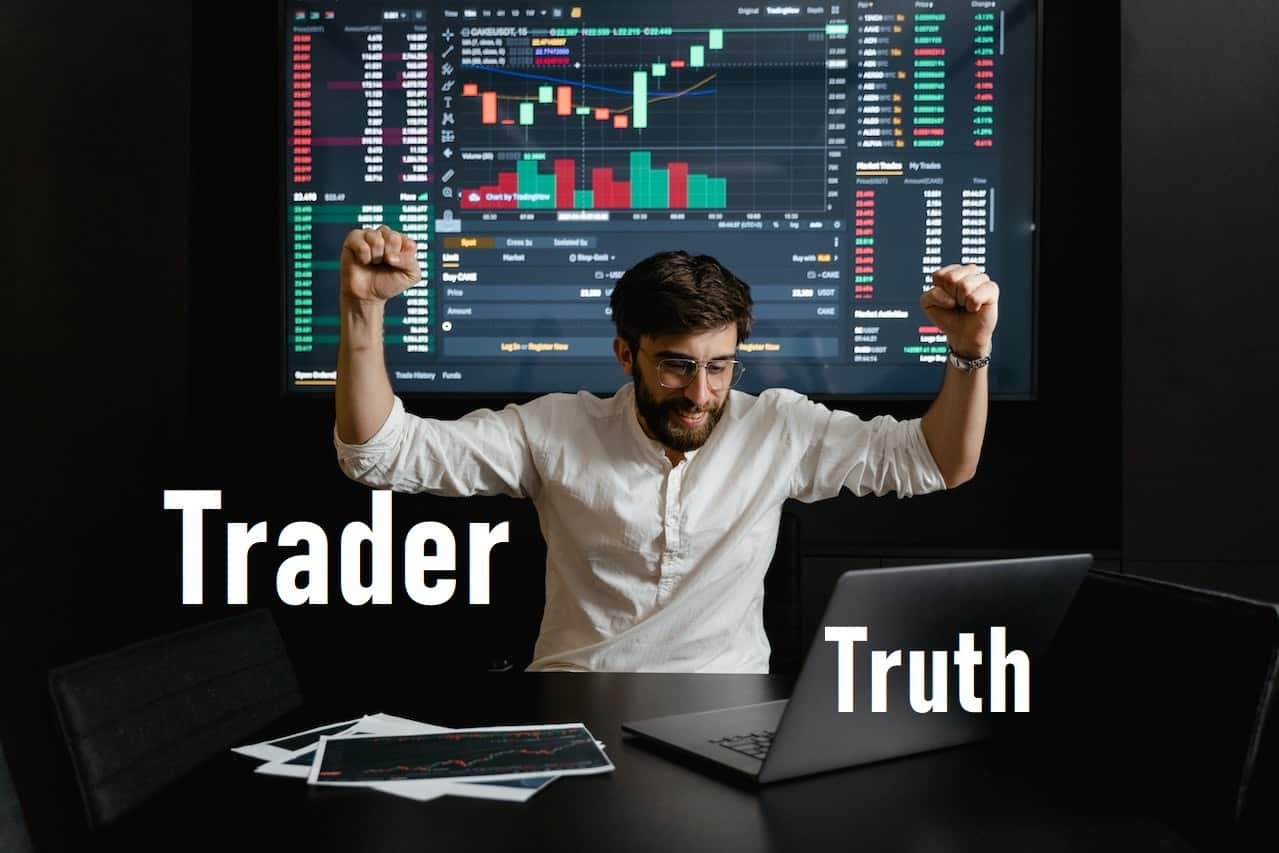Trading, the art of buying and selling financial instruments with the aim of making a profit, is often seen as a path to financial freedom. Many embark on this journey, lured by promises of quick riches and financial success. However, here’s the hard truth: No one can teach you to become a profitable trader.
The Myth of Trading Education
Before we delve into why this assertion holds, let’s address a common misconception: the belief that attending courses or learning from experienced traders can turn you into a successful trader. It’s time to shatter this myth.
Trading is a Personal Journey: Trading is a highly individualized and personalized journey. It’s like a craft that you must master yourself. Learning market analysis, understanding indicators, grasping price action, and studying strategies from others won’t automatically make you profitable. Why? Because profitable trading is a unique blend of skills, intuition, and experience that cannot be easily transmitted from one person to another.
The Trader’s Path to Success
So, if you can’t learn to trade profitably from others, how does one become a successful trader? The answer lies in understanding that trading is a personal evolution that every trader must undergo. Here are key aspects of the trader’s journey:
1. Developing Your Own Strategies
Profitable traders do not rely on someone else’s strategies. They craft their own approaches through trial and error. Each trader’s strategy is as unique as a fingerprint, tailored to their risk tolerance, market outlook, and personal style. It’s not a one-size-fits-all formula.
2. Learning from Losses and Setbacks
Handling losses and setbacks is a personal skill that traders must cultivate over time. This resilience is not something that can be taught directly. It’s the result of experiencing both triumphs and failures in the market.
3. Nurturing Intuition and Gut Feeling
A trader’s intuition and gut feeling aren’t skills that can be imparted. These instincts develop from years of exposure to different market situations, countless trades, and a deep understanding of market dynamics. They are, in essence, the trader’s sixth sense.
The Role of External Courses and Mentors
Now, don’t get us wrong; external courses and mentors can provide valuable insights. They can help you understand market basics, introduce you to various trading strategies, and provide guidance on risk management. However, it’s crucial to remember that these resources are supplements to your journey, not shortcuts to success.
External knowledge needs to be synthesized with your own experiences and adapted to your unique trading style. It’s about integrating what you’ve learned into your personalized approach.
The Dangers of Trading Gurus
In the trading world, you’ve likely encountered self-proclaimed gurus promising to teach you strategies that will turn you into an extraordinary trader. It’s essential to approach such claims with skepticism. The reality is that there are no magical strategies that guarantee success.
Profitable trading is a slow and gradual evolution cultivated over time through patience, dedication, and a willingness to learn from both successes and failures.
The Reality of Trading
Here’s the bottom line: Becoming a profitable trader is a marathon, not a sprint. It’s akin to mastering an art or a craft, and it demands extensive practice. No amount of reading books or watching hours of videos can replace the hands-on experience of making trades, managing risks, and adapting to market conditions.
To illustrate this point, let’s take a look at a real-life example:
Jesse Livermore: The Legendary Trader
Jesse Livermore, often considered one of the world’s greatest traders and a pioneer of day trading, made a staggering $100 million during his peak in the early 20th century. Adjusted for inflation, this would be roughly $1.4 billion or 11,000 crore rupees today. However, his trading journey wasn’t without its share of hardships.
Livermore filed for bankruptcy not once but four times during his career. His suicide note tragically read, “I’m a failure. This is the only way out.” This stark example illustrates that even the most successful traders face tremendous challenges along the way.
The Role of Influencers
In today’s digital age, social media influencers, including those in the financial world (finfluencers), have gained prominence. They often share insights and strategies. However, it’s crucial to approach their advice with caution.
The reality is that many influencers may not possess the level of expertise they claim. Their knowledge often stems from case studies in business schools and brief stints at consultancy firms. They might not be any more knowledgeable than you or any other trader unless they have substantial experience in the equity markets.
The Lonely Road to Trading Success
Trading is often described as a lonely road. It’s a path that requires immense dedication and personal growth. Here’s a nugget of wisdom from a fellow trader:
“I consider trading/investing to be a ‘craft’ that one can master by allocating enough energy and time (years if not months). But I guess a good mentor can tremendously accelerate this process.”
Embrace the Journey
In conclusion, becoming a profitable trader is a journey unique to each individual. There are no shortcuts, no quick-fixes, and certainly no guaranteed strategies. It’s about embracing the process, being ready to learn from failures, and developing your distinctive trading style.
Think of it as mastering a musical instrument. While a teacher can guide you, it’s the hours of practice, the moments of breakthrough, and the trial and error that truly shape you as a musician. Trading is no different.
So, as you embark on your trading journey, remember that it’s your journey, and only you can navigate it. May your trades be wise, and may your profits be plentiful. In the world of trading, the only constant is change, and the only guarantee is that the journey will be filled with surprises, challenges, and, hopefully, successes.
Appendix: Key Takeaways
To summarize the key takeaways from this article, here’s a handy list:
- No one can teach you to become a profitable trader; it’s a personal journey.
- Trading is an individualized craft, requiring skills, intuition, and experience.
- Strategies are unique to each trader and develop through trial and error.
- Handling losses and setbacks is a personal skill cultivated over time.
- Intuition and gut feeling come from years of market exposure.
- External courses and mentors provide valuable insights but aren’t shortcuts.
- Be cautious of trading gurus promising magical strategies.
- Trading is a slow and gradual evolution, demanding patience and dedication.
- Social media influencers may not have the expertise they claim.
- Embrace the journey, learn from failures, and develop your unique style.













